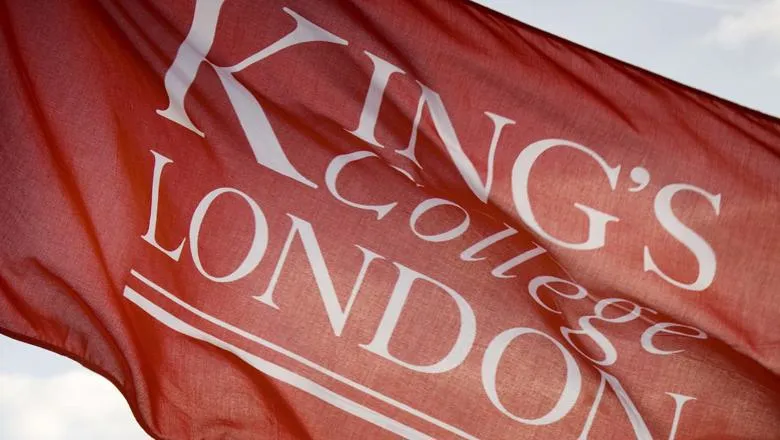Engineering ranked 12th overall by GPA in the largest sub-panel of 88 institutions with 75% of impact 4*

The REF submission for Unit of Assessment (UoA) 12 (Engineering) consisted of 98.4 FTEs, spread across the entire School of Biomedical Engineering & Imaging Sciences (BMEIS) in the Faculty of Life Sciences and Medicine (FoLSM,77.4 FTEs), as well as the Department of Engineering embedded within the Faculty of Natural, Mathematical & Engineering Sciences (NMES, 21 FTEs).
Staff within this unit were extremely interdisciplinary, and our outputs were published in technical and clinical journals, demonstrating the breadth of our research, high degree of cross-disciplinary collaborations, and our ability in taking new engineering developments right through to clinical translation and commercialisation.
Eight impact case studies were submitted which focused on healthcare innovations leading to patient impact, developed within BMEIS. Examples include novel imaging technologies which improve the diagnosis of cardiovascular conditions and a radiotracer kit to support prostate cancer diagnosis, both licensed and commercialised by major healthcare industry partners over the REF period. We were also fortunate to include a very timely impact study, the ZOE COVID Symptom Study App that supported significant national government policy decisions during the current COVID-19 pandemic. Spotlight features of our impact case studies can be seen here:
- CYDAR: An AI-driven image guidance system for minimally invasive endovascular aortic surgery
- ZOE COVID Study app: How King's researchers slowed the spread of COVID-19
- Treating cancer with advanced radiotherapy technology
- Researchers develop non-invasive and radiation-free assessment for coronary artery disease
- Major clinical trials used results of early PET scans to guide treatment in Hodgkin lymphoma patients to reduce side effects and improve survival
- Improved treatment for prostate cancer with new PET imaging technology
Our research & impact strategy is therefore to build an agile multi-disciplinary field drawing on all other disciplines, including healthcare and policy makers, cultural partners, and industry. We will be building on recruiting and retaining world-class research staff, collaborating with affiliated and partners, further growing our research income and sharing knowledge across sectors to increase our impact by enhancing our infrastructure and expertise to accelerate research.
King's Engineering, aims to foster collaborations and facilitate problem-solving research through collective insight to create novel solutions and an ecosystem to address some of the most pressing engineering research questions to build a better, more sustainable world to the benefit of society. With our continued growth, in the future, along with even closer integration with our healthcare colleagues, we will go from strength to strength.– Professor Bashir M. Al-Hashimi, Executive Dean of Faculty of Natural, Mathematical & Engineering Sciences
Our submission illustrates the strengths of Engineering and the impact we have achieved within healthcare. Through a powerful research ethos, multi-disciplinarity, strong industry partnerships we are supporting and improving patient lives. We are poised to identify key needs in our healthcare systems and swiftly address them, ensuring that our innovations go from bench-to-bedside in a reduced timeframe and make a global impact.– Professor Sebastien Ourselin, Head of School of Biomedical Engineering & Imaging Sciences
Together with our colleagues in the School of Biomedical Engineering & Imaging Sciences, we have created a strong foundation for our future research and our REF results are clearly reflective of this. With the newly established King's Engineering, comprising the Department of Engineering and the School of Biomedical Engineering & Imaging Sciences, we are even better poised to solve multidisciplinary engineering challenges which address the most pressing needs in society.– Professor Barbara Shollock, Head of Department of Engineering
Our future aims will focus on building and further consolidating our existing strengths in healthcare engineering and telecommunications whilst strategically growing areas such as Manufacturing and Sustainability.
We are delighted by our excellent performance in the Research Excellence Framework (REF), with 95% of our research outputs being rated 4* and 3* in the unit of assessment for Engineering.
The REF assessed the quality of research carried out between 2014 and 2021 in UK higher education institutions.
A total of 98 staff were submitted as part of the assessment – almost half of these were early career researchers, a reflection of our pool of young and exciting academic talent.
Of the 8 impact case studies submitted, 6 were rated as having outstanding impact (75% at 4*) and 2 were rated as having very considerable impact (25% at 3*) in terms of reach and significance. We ranked top 6 for impact out of 89 submissions.
More detailed REF results can be found here.






